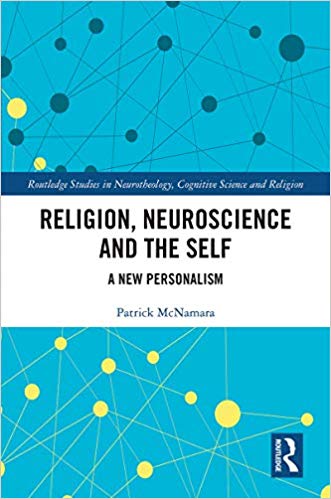The purpose of this book is to use neuroscience discoveries concerning religious experiences, the Self and personhood to deepen, enhance and interrogate the theological and philosophical set of ideas known as Personalism. McNamara proposes a new eschatological form of personalism that is consistent with current neuroscience models of relevant brain functions concerning the self and personhood and that can meet the catastrophic challenges of the 21st century.
Eschatological Personalism, rooted in the philosophical tradition of "Boston Personalism", takes as its starting point the personalist claim that the significance of a self and personality is not fully revealed until it has reached its endpoint, but theologically that end point can only occur within the eschatological realm. That realm is explored in the book along with implications for personalist theory and ethics. Topics covered include the agent intellect, dreams and the imagination, future-orientation and eschatology, phenomenology of Time, social ethics, Love, the challenge of AI, privacy and solitude and the individual ethic of autarchy.
This book is an innovative combination of the neuroscientific and theological insights provided by a Personalist viewpoint. As such, it will be of great interest to scholars of Cognitive Science, Theology, Religious Studies and the philosophy of the mind.
چکیده فارسی
هدف این کتاب استفاده از اکتشافات علوم اعصاب در مورد تجارب دینی، خود و شخصیت برای تعمیق، تقویت و بازجویی مجموعه الهیاتی و فلسفی از ایده های معروف به شخصیت گرایی است. مک نامارا شکل آخرتشناختی جدیدی از شخصگرایی را پیشنهاد میکند که با مدلهای علوم اعصاب فعلی عملکردهای مغز مرتبط با خود و شخصیت سازگار است و میتواند با چالشهای فاجعهبار قرن بیست و یکمst
مقابله کند.
شخصیت گرایی آخرت شناختی، که ریشه در سنت فلسفی "شخصیت گرایی بوستون" دارد، این ادعای شخص گرا را به عنوان نقطه شروع خود می گیرد که اهمیت خود و شخصیت تا زمانی که به نقطه پایانی خود نرسیده است، به طور کامل آشکار نمی شود، اما از نظر الهیاتی، این نقطه پایان می تواند فقط در قلمرو معاد شناسی رخ می دهد. این قلمرو در کتاب همراه با مفاهیمی برای نظریه و اخلاق شخصی گرا بررسی شده است. موضوعات تحت پوشش عبارتند از: عقل عامل، رویاها و تخیل، آینده نگری و آخرت شناسی، پدیدارشناسی زمان، اخلاق اجتماعی، عشق، چالش هوش مصنوعی، حریم خصوصی و تنهایی و اخلاق فردی خودکامگی.
این کتاب ترکیبی نوآورانه از بینشهای علوم اعصاب و الهیاتی است که توسط دیدگاه شخصیگرا ارائه شده است. به این ترتیب، برای محققان علوم شناختی، الهیات، مطالعات دینی و فلسفه ذهن بسیار جالب خواهد بود.
ادامه ...
بستن ...
Ebook details:
عنوان: Religion, Neuroscience and the Self A New Personalism (Routledge Studies in Neurotheology, Cognitive Science and Religion) (9780367028961)
نویسنده: Patrick McNamara
ناشر: Routledge; 1 edition (January 14, 2020)
زبان: English
شابک: 0367028964, 978-0367028961
حجم: 3 Mb
فرمت: TRUE PDF
ادامه ...
بستن ...










